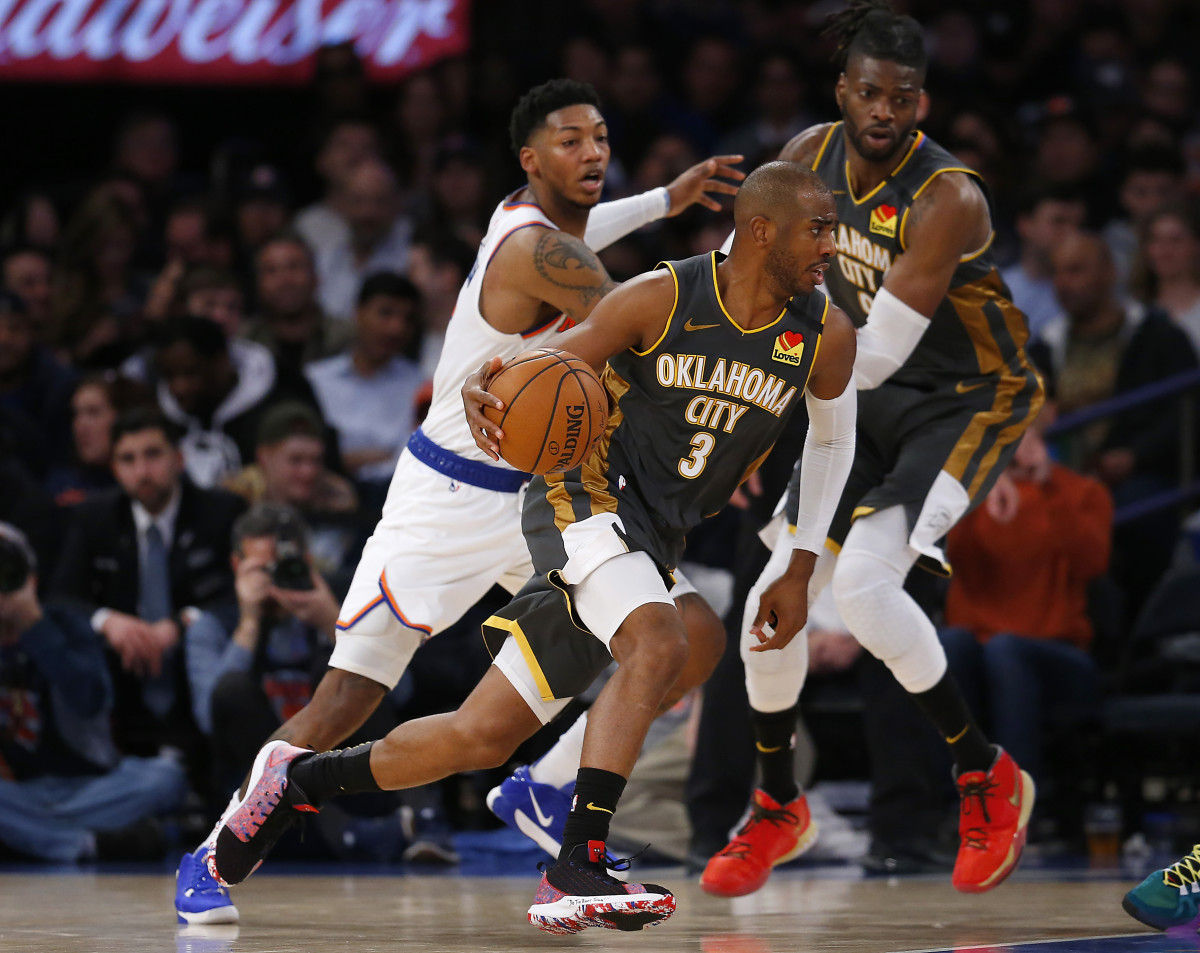On Chris Paul & the Knicks, and whether winning is the thing
During the 2005-06 NBA season, a then 20-year-old Chris Paul stepped foot onto an NBA court for the first time.
Over the next six months, he improved the New Orleans Hornets more than any rookie had improved any team since another first-year player from Wake Forest joined the Spurs nearly a decade earlier and instantly turned them into contenders.
You could argue that there have been better NBA rookies than Chris Paul and Tim Duncan over the last 25 years, but according to Basketball Reference's Win Shares metric, none had a more positive impact on their team.
Using that barometer, aside from Paul and Duncan, the only rookies in the last 40 years to add more wins to their team were Shaquille O'Neal, David Robinson, Michael Jordan, Hakeem Olajuwon, Larry Bird, and Magic Johnson.
Not bad.
Since Paul's rookie season, no rookie has surpassed his 10.4 added wins in 2005-06, with Blake Griffin and Ben Simmons - two players who had the luxury of redshirting their first year in the league - coming the closest.

Fast forward to this season. With hoops currently on hold, a 34-year-old-Chris Paul is currently tied for ninth in win shares with 8.1, joining LeBron James as the only players over 30 to be in the top-15 of those rankings.
Baring injury (and assuming the season concludes with a full 82 games) he and James will finish this season with at least 10 total shares, joining Kobe Bryant, Dirk Nowitzki and Pau Gasol as the only players 34 or older to do so in the last 15 years.
In between his rookie year and now, all Paul has done is rack up more win shares than anyone else besides Lebron during that time. Only 11 men in history, in fact, have more than his 179.54 career total, and only three players have a higher win shares per 48 minute average: Michael Jordan, David Robinson and Wilt Chamberlain.
Again: not bad.
As the sporting universe hits the pause button and we all have way too much time to spend thinking about what the offseason could hold (whenever it might be), there is no more fascinating conversation than the one surrounding Chris Paul and the Knicks.
I wrote extensively on the subject earlier this week for Knicks Film School, and asked a simple question: for a franchise that can't ever seem to get out of its own way, is it futile to try and emulate the best organizations (i.e., ones that expertly scout, draft, and develop their talent), and should they instead chug the NBA version of a Monster Energy drink and let Paul give them the jolt they've sorely been lacking?
The notion of a Paul trade is obviously multi-faceted, with several issues that warrant consideration, including:
- The tread on Paul's tires (over 39,000 minutes played, including playoffs),
- The asset return Oklahoma City would require,
- The $85.5 million Paul is due over the next two seasons, and
- The likelihood of the Knicks taking themselves out of the lottery for one of the best drafts in years
That last point is what it should really come down to. Simply put, the Knicks have to decide if they're in it to win it or not.
Development - when done properly, at least - is done by giving what are often painful minutes to young players, often in high usage settings. Knick fans have enjoyed watching RJ Barrett flex his teenage muscles in the blue and orange all year, but it doesn't change the fact that New York is nearly five and a half points per 100 possessions better when he's on the bench. We witnessed an even harsher learning curve with Kevin Knox last season, when New York was more than 10 points per 100 worse when he played.
If the Knicks don't trade for Paul, they're almost certain to draft a rookie point guard with their first pick, and history shows there to be no steeper learning curve than the one for first-year ballhandlers. The Ja's and Luka's of the world are the exception, not the rule.
Then, of course, there's the notion of drafting a LaMelo Ball or a Cole Anthony or a Killian Hayes and still trading for the Point God as a hybrid mentor/savior, in the hopes that New York could replicate what the Thunder have managed to pull off so admirably this season with Paul and Shai Gilgeous-Alexander.
Such a tightrope of winning and development won't be easy though, as this season has proven. In all liklihood, the Knicks will have to make a choice: we're in it to win it or we're not. Paul will not be coming to foster learning on the fly.
For that very reason, some will continue to dismiss the wisdom of a Paul trade on it's face as antithetical to every notion of smart team-building, but to do so ignores the positive effect that winning can have in and of itself. As the win share stats show, Paul has the ability to single handedly revive a franchise. As for his impact on young players who are slightly further ahead on the learning curve, just ask SGA, Blake Griffin and David West (a two-time All-Star alongside Paul) their opinion on the matter.
We've already seen CP3 give life to whole organizations much in the way that Steve Nash and Jason Kidd once did earlier this century. There's no reason to think Paul doesn't have it in him to do it once more.
But if that's the way New York decides to go, they need to have a plan in place for what to do either when Paul's inevitable decline begins or his contract runs out, whichever comes first. Kidd was 28 when he became a Net; Nash 30 when he joined the Suns. Paul will likely turn 35 before the next NBA game is played. Time is running out.
Will Leon Rose bet that winning begets more winning and make a play for his former client? Or will the slow and steady approach that so many fans have clamored for finally be given a chance in earnest?
We'll find out, not as soon as we thought, but soon enough.
